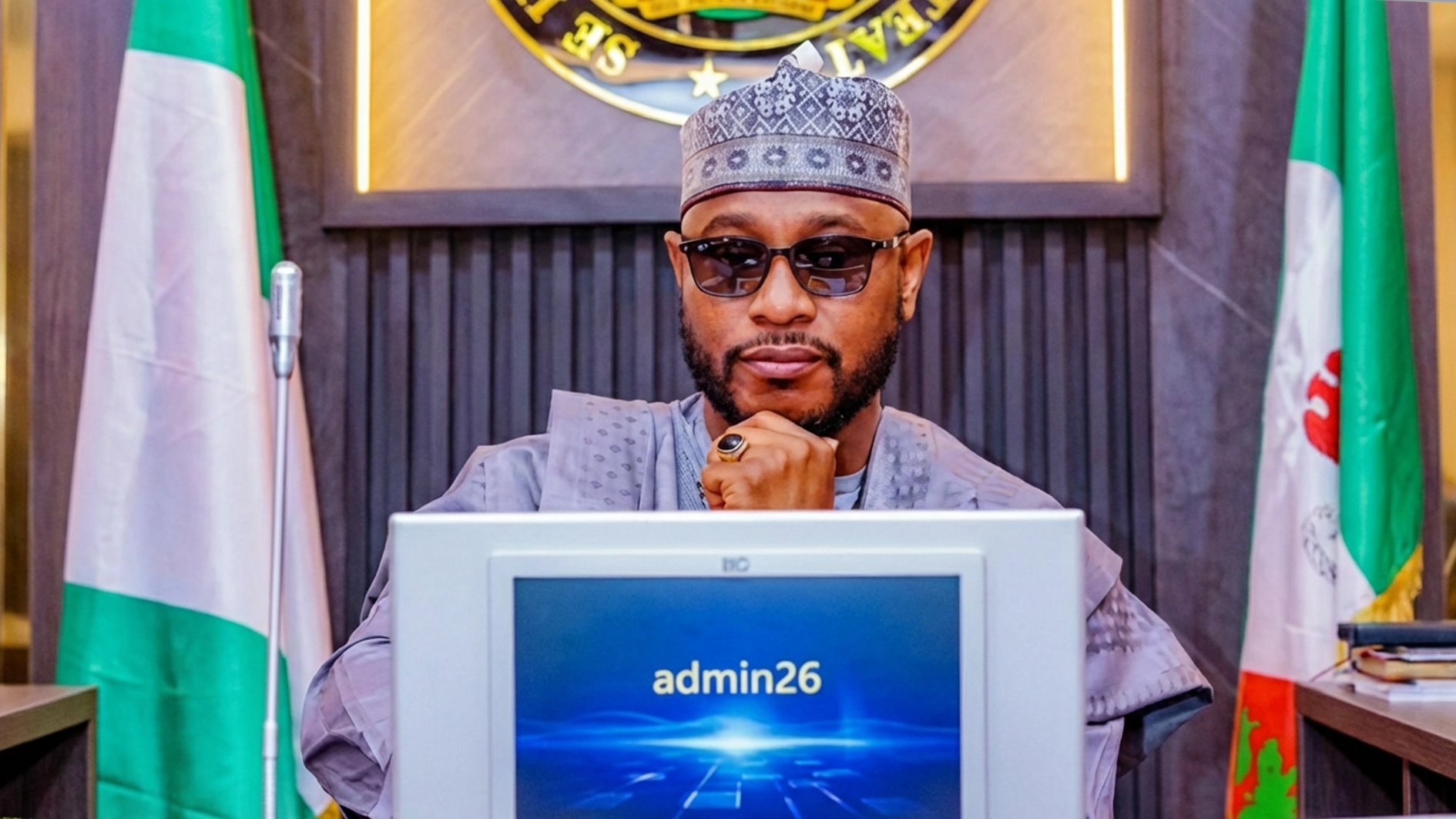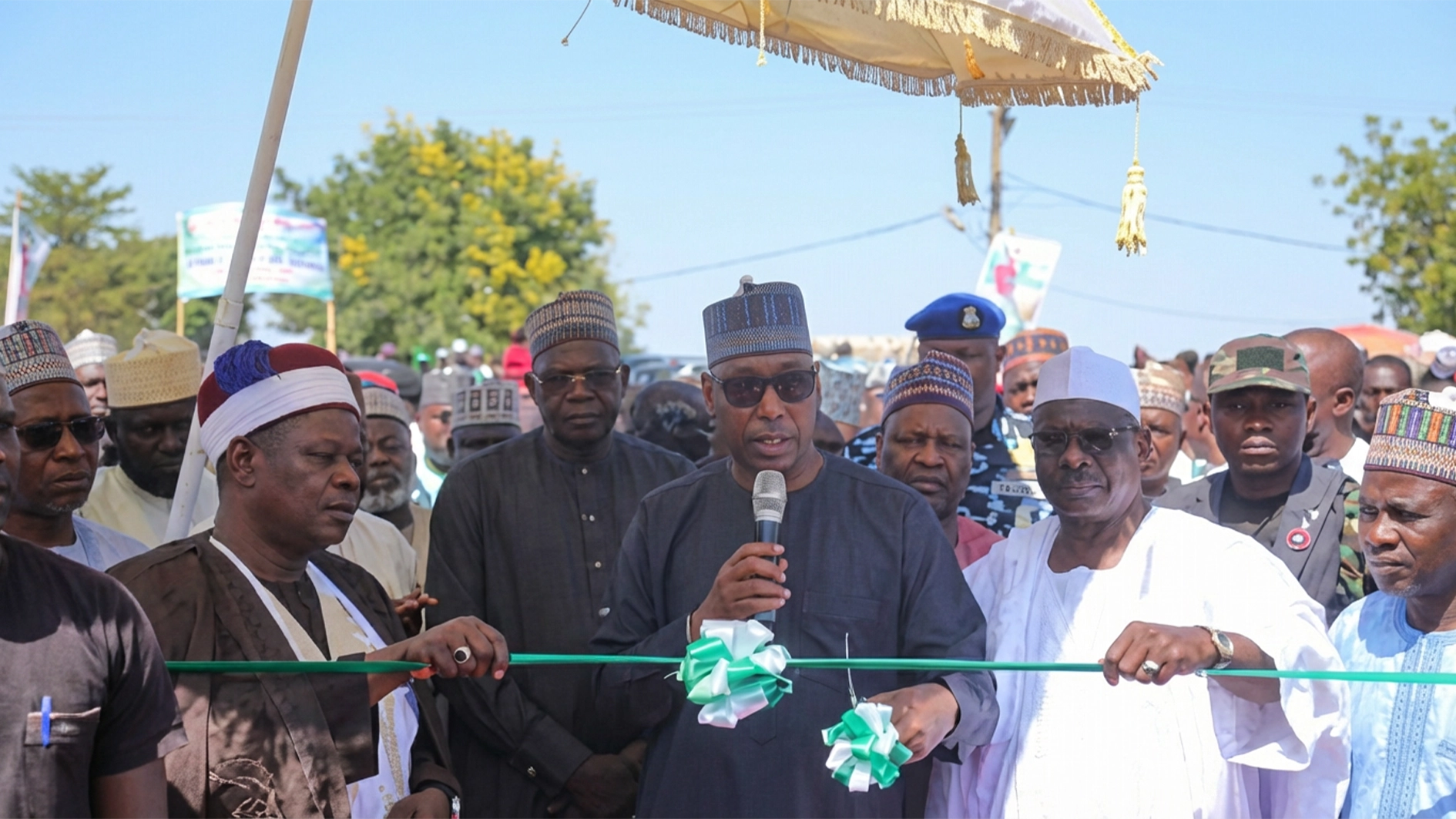Nigerian universities have become embroiled in politics and ethnic bigotry as they are plagued by calls for “indigene” vice-chancellors in disregard and violation of the institutions’ time-honored values and rules. Lately, the country’s premier university, the University of Ibadan, has been caught in the web of a demand for an “indigene” vice-chancellor. Head, Education Desk, IYABO LAWAL looks at the effect of ethnicity and decadence on the university system.
By December 1, 2020, Abel Olayinka’s tenure as the Vice-Chancellor of the University of Ibadan (UI) will expire. That’s simple. What’s complex is the demand, not just for another Yoruba person to replace him, but that the next vice-chancellor should be an Ibadan indigene.
At the core of this phenomenon is the issue of selecting a university’s vice chancellor. Whether state or the Federal Government-owned, Nigerian universities have remained plagued by ethnic considerations over issues that should be determined by excellence, practicality, and merit, such as who becomes a vice chancellor.
Trouble is brewing in Ibadan at the moment, where the clamour for an Ibadan professor to be chosen as the next vice chancellor of Nigeria’s premier university is in the works. Universities, by their evolution, philosophy, essence, and character, are universal institutions established to provide solutions to problems that confront humanity with the brightest and the best in learning and character always called on to provide astute leadership, eschewing primordial sentiments like ethnicity.
The Central Council of Ibadan Indigenes (CCII) had announced that they want President Muhammadu Buhari to appoint someone who hails from Ibadan as the vice chancellor for UI, claiming they were marginalised in previous appointments.
Simply put, the university, since 1948, has not produced an Ibadan indigene as the vice chancellor. Can there be a change? The CCII President, Adeye Soladoye, and his fellow Ibadan agitators think that the pattern should change.
The group already has four Ibadan indigenes it is pushing forward as qualified to succeed the incumbent. They are Professors Remi Raji-Oyelade, member, UI Governing Council, and former Dean of the Faculty of Arts; Kayode Adebowale, Deputy Vice Chancellor, Administration; Emiola Olapade-Olaopa, former Provost, College of Medicine; and Kolapo Hamzat, Head of Department of Physiotherapy.
Federal universities elect vice chancellors with governing councils presenting three top candidates to the Visitor (the country’s president) to make a final selection.
Speaking on behalf of the CCII, Soladoye said: “We do not want innocent oversight on the part of some Nigerians to cause disharmony between us and our Yoruba kinsmen. But then, this handshake is going too far beyond the elbow.”
He reminded the world of Ibadan’s “trademark of tolerance and hospitality.” Yet, the association has its antagonists in the Coalition for Autonomy of Universities in Nigeria (CAUN), which expressed concerns about who becomes the next UI vice chancellor.
According to the group, the best in human management and astute university administrator must be chosen because UI is the premier university and appointments should devoid of ethnic or religious considerations.
Ethnic, political, religious, and geographical factors, besides academic records and administrative capabilities, are being used in appointing a vice chancellor in a Nigerian university, but UI should be different, CAUN argued.
The group lamented that the university system, known for its strong, scientific and ethical processes of appointing vice chancellors, had been corrupted for other pecuniary purposes rather than seeking academic transformation of the institution for real research, teaching, learning and development.
Like CAUN, many disinterested stakeholders believe there is a gradual erosion of the tradition and autonomy of the university through the introduction of extraneous factors like ethnicity, religion, political affiliations, godfatherism, and influence of external parties into the contest for the position in universities.
Not a few are convinced that the perverse yardsticks of appointing a vice chancellor, not only in UI but other publicly-owned universities, would destroy a merit-based system.
A former vice chancellor, who pleaded anonymity, said the development might not be too good for the image of the ivory tower. “What the University of Ibadan, whose catchment area is the whole federation, requires is a well-groomed administrator who has an excellent knowledge of the system, the host community, and the people,” he added.
Like CAUN, a university teacher, Prof Offiong Effanga Offiong, warned against the use of politics and ethnicity as criteria for the selection of administrators in Nigerian universities.
Offiong maintained that politics should not be the primary consideration in the appointment of a vice chancellor.
Some education managers in their contributions, said universities need administrators with international connections to attract funding and recognition to the system.
Prof Yakub Ahmed of the University of Maiduguri lamented that appointments of vice chancellors in the nation’s tertiary institutions have always been fraught with the issue of indigenes or non-.indigenes.
In 2010, the University of Port Harcourt (UNIPORT) was in the news as its staff and students of Ikwerre ethnic origin disrupted activities in the school, protesting alleged plot by the institution’s governing council to prevent their kinsmen from contesting the position of vice chancellor. The genesis of the protest was a vacancy advertisement in which the institution had said interested applicants must be professors with not less than eight years’ experience. But the aggrieved Ikwerre agitators believed that was a deliberate effort to shut out one of theirs. They claimed that though the university was situated on their land, no Ikwerre individual was appointed as its administrator.
In that same year, the University of Benin and Ahmadu Bello University also faced similar crisis regarding where the helmsman should come from.
To put things in a context, UI, founded on November 17, 1948, appointed Prof. Kenneth Dike, from the southeast, as its first Nigerian administrator and Prof. Tekena Tamuno, from the Niger Delta region, as vice chancellor from 1975 to 1979, but after the tenure of Prof. Ayo Banjo, between 1984 and 1991, all the university’s administrators have always been from the southwest.
Between 1960 when it was established and 1966, the University of Nigeria (UNN), Nsukka had foreigners as its VCs and a northerner between 1978 and 1979, Prof. Umaru Shehu. But from 1980 to date, except for 1994 when Prof. Umaru Gomwalk was appointed as a sole administrator, all UNN’s vice-chancellors have been Igbo.
Considering also Ahmadu Bello University (ABU), established in 1962, its first vice-chancellor was a British, Dr Norman Alexander, who succeeded in 1966 by Dr Ishaya Audu, a northerner, who held sway until mid-1975. But between 1978 and 1979, it had a vice chancellor from the southwest, Oladipo Akinkugbe. Since then, ABU’s administrators have always come from the north.
At the University of Benin (UNIBEN), established in 1970, at the expiration of Prof. Emmanuel Nwanze’s tenure as the vice chancellor in 2009, the campaign for the appointment of a Bini indigene as the head heated up. A particular group, in an advert published in some newspapers, threatened the Federal Government, insisting that it was either a Bini indigene or nobody else.
The eventual emergence of Prof. Osayuki Oshodin in November 2009 as the vice chancellor, even when he came third among the contestants in the order of merit, was seen as a fall-out of that agitation.
Speaking on the situation, Minister of Education, Adamu Adamu said, “The appointment of VCs had taken an ethnic dimension in Nigeria. It no longer lies with the university or in the hands of the ministry.”
Adamu explained further, “I know what it means because I have always been under pressure from the people of the affected states who say the appointment of VCs must be somebody from their area. Initially, the universities would select, bring the name to the minister who in turn takes it to the president. But now, it is no longer so.”
In the past things were different
For instance, the first vice-chancellor of UNILAG was Prof. Eni Njoku (1962-65). He was non-Yoruba. There was also Prof. B. Kwaku Adadevoh (1978-80), non-Yoruba. There was Prof. Dike, an Igbo, who was UI’s VC. Then, the first indigenous ABU administrator, Prof. Audu, was a northern Christian. Prof. Akinkugbe, from Ondo State, was ABU’s VC (1978-1979).
In addition, there was Adamu Baikie, from Kano, who presided over UNIBEN. There was also Prof. Cyril Agodi Onwumechili, who was at UNN when he was appointed the VC of the University of Ife (now OAU) in 1979.
University dons, Dr Ocheme Akpakwu and Prof. F.A. Okwo, said when socio-political factors such as ethnicity, sectionalism, religion, partisanship, catchment area, quota system, and favouritism influence the appointments of council members, vice chancellors, and other principal officers of universities, the morale of staff and students is dampened, mediocrity is enthroned and productivity is affected.
A professor of Biochemistry and World Bank’s Robert S. McNamara fellow, P. O. Uadia stated that a vice-chancellor epitomises the highest ideals of a university and the occupant of the post should be someone with the tallest vision, to whom all brilliant minds in the institution would look up to.
Making reference to UNIBEN, the scholar said the most dangerous trend the crisis in some of the institutions has taken is the open discussion and endorsement of ethnicity.
“Not only is ethnicity being touted as the major and sole criterion to be used in appointments and promotion to senior academic and administrative positions in the university, ethnicity now determines the pattern of personal and group relationships in the system,” he added.
For him, it is a dangerous trend basing vice chancellors’ appointments on ethnicity because it will discourage first-class academics from other parts of the country from coming to such a university.
Besides, ethnicity, he noted, will also discourage international students and scholars from the university, which will reduce the international staff and students’ component in a university, a major criterion being used to rank universities globally.






